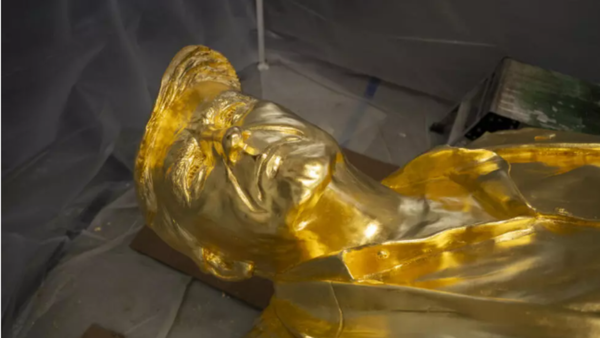
Just days after Elon Musk announced that he was seeking to terminate his deal to buy Twitter, the social-media company filed a 62-page lawsuit against Musk, claiming he was in violation of his agreement and was legally bound to buy the firm. (Musk responded on Twitter: “Oh the irony lol.”) Musk had claimed that the company withheld information about the number of spam bots, or false accounts, on its platform. Twitter argued that Musk is creating flimsy excuses to walk away from a deal because both his net worth and the value of Twitter have plunged since April.
[Read: Elon Musk, Baloney King]
Twitter’s lawsuit is an extraordinary and odd document. It paints Musk as a dishonest and unserious hypocrite, the sort of person you would never want running your company. But because this same dishonest and unserious hypocrite has signed a document offering to pay a huge premium to shareholders, Twitter’s board is bound by its fiduciary duty to enforce a merger neither Musk nor Twitter’s employees seem to want. It’s an awfully strange twist to the marriage-plot genre: I hate your guts, now marry me! This is shareholder capitalism as romantic comedy.
To understand the situation a little better, I reached out to Brian JM Quinn, a professor at Boston College Law School whose research focuses on corporate law and mergers and acquisitions.
Our conversation, which you can also listen to on my podcast Plain English, has been edited for brevity and clarity.
Derek Thompson: How common is it in mergers like this to have one party get cold feet and try to back out?
Brian JM Quinn: This is not uncommon. Leaving out the personalities for the time being, this is a common situation. Somebody buys a company. The next month, it looks like they overpaid for it. The buyer calls a lawyer: Is there any way that you can get me out of this? That happens a lot.
Thompson: How unusual is Elon Musk’s behavior?
Quinn: It’s really weird. The public-disclosure provision of the original merger contract is typically never negotiated. But here, and I was shocked, they seem to have added a sentence in Section 6.8 protecting Musk’s ability to tweet. Except he was not allowed to disparage “Twitter or its representatives.”
And then he proceeded to use that power to tweet poop emojis about Twitter and criticize the company and its executives. That’s just very weird. The lawyers who wrote the Twitter lawsuit must have had a really good time, because they used Musk’s tweets against him, hoisting him on his own petard, over and over. Every single one of those tweets is a possible violation of the disparagement provision. And now Musk is in breach of the contract, Twitter says, which means he can’t take advantage of termination provisions.
[Charlie Warzel: Elon Musk is not playing four dimensional chess]
Thompson: And it wasn’t just vague poop emojis. Musk tweeted about Twitter’s alleged left-wing bias and called out Twitter’s banning of the New York Post as being “obviously incredibly inappropriate.”
Quinn: It’s very damaging for Musk that he’s potentially provided evidence of being in violation of the contract. If you have unclean hands, if you’ve done the wrong thing, you can’t race to the contract and seek the protections of the contract. If you want to avail yourself to the terms and protections of the contract, you can’t have abused it.
Thompson: Let’s take Musk’s claims seriously for a second. What is he claiming, and what’s his best case for getting out of this deal?
Quinn: Elon Musk and his lawyers make three claims. First, they claim that Twitter isn’t being honest about the number of bots. That’s a pretty flimsy pretext. Second, they claim that Twitter isn’t disclosing enough information about the bots, which also seems like a difficult argument to make in court.
Thompson: On April 21, Musk tweeted that he was going to go after Twitter’s bots or “die trying.” I’m not a lawyer, but this is pretty confusing to me. Musk can claim he wants to buy Twitter to clean up all the bots. Or he can claim that he doesn’t want to buy Twitter, because there are a lot of bots. But you can’t really say both things in the span of three months.
Quinn: Absolutely. He was tweeting about the bots before they signed the merger agreement. That’s evidence that he knew there was a bot problem! He was focused on it. So when he now says, “Oh Jeez, I can’t believe there are so many bots,” it’s ridiculous. It’s really ridiculous.
Thompson: Truly a maximal example of “Never tweet.”
Quinn: Or text! The complaint discusses text messages between Twitter and Musk where a Twitter executive asks, basically, “Should we purge the system of bots?” and Musk’s response is, essentially, “Not yet; wait until it’s a private company, because it’ll look better.” These are his own texts! If I were his lawyer, I’d walk away. Musk is a nightmare client.
Thompson: Tell me about Musk’s third claim.
Quinn: The third argument that he made was that Twitter was no longer operating in the ordinary course of business. The company had let go of a bunch of people, including 30 percent of its talent-acquisition group, and several high-level people resigned.
This is the kind of argument that has won in court before. I’ll give you an example. The recent case AB Stable v. Mirae involved a transaction where a company was acquiring a luxury-hotel chain. They signed an agreement just before the pandemic. Then March 2020 rolled around and all of a sudden, it looked like a hotel chain was a bad investment. And so the buyer tried to walk away from the deal because the hotel group had stopped taking reservations. There were no people in the hotel. And the court looked at this and said, yes, COVID has been pretty terrible, but the hotel chain had an obligation to run the business in “ordinary course.” If you’re not taking reservations, you’ve changed the operation of your business. So they permitted the buyer to walk away.
Thompson: So this initially seems like Musk’s strongest case. How did Twitter respond?
Quinn: They took it head-on. They claim they sent notices to Musk and his team saying that they were going to let these people go, and Musk and his team didn’t say anything. They claimed they called Musk up on two separate occasions and told him they wanted to do an employee-retention program to create incentives for people to stay at the company until the closing. And Musk reportedly said he didn’t care. Furthermore, at the all-hands meeting, Musk said that since costs were exceeding revenues, he wasn’t opposed to losing people to naturally downsize the company. When you add it up, it looks like Musk wasn’t concerned about people leaving the company.
Thompson: Give me your general impression of the Twitter lawsuit. What do you think Twitter is actually trying to accomplish here?
Quinn: Twitter puts itself in the maximum position of leverage with that lawsuit to win in court, or to get Musk to the negotiating table to extract a large settlement before he goes on his merry way. The strongest argument is the framing of the complaint. They frame the complaint as one of buyer’s remorse: Musk realized he made a mistake and is looking for an exit.
Thompson: What should we know about the Delaware Court of Chancery, where this is all headed?
[Read: The tiny state whose laws affect workers everywhere]
Quinn: The Delaware court hears disputes between the biggest corporations in the world, represented by the most sophisticated counsel, with the most significant investors on Wall Street. When they show up in court with a contract, the court presumes that when they signed that contract, they meant it. They’re not going to allow parties to just walk away from deals. Musk is a big boy, and this court treats these parties like big boys and girls. When they make mistakes, they have to eat their mistakes. We’re not talking about you going into the mall and buying a new cellphone and the company hands you a 25-page contract you can’t read, and you sign it and are surprised by what it says. These parties pay their lawyers $1,000 an hour or more so that they know exactly what every contract says.
Thompson: How does this end?
Quinn: The Twitter board would like to do the deal. Because the best thing for their stockholders is to get the $54 a share. But if they can’t get that, $50 a share is good, too. If Musk says $36, that might be too big a delta.
But the other thing that could happen is Twitter says, You don’t want to buy us, and we don’t want you to buy us, either. Musk offered to buy Twitter for $54 a share. Now Twitter is trading around $35 a share. Maybe Twitter says, Give us $20 a share, and you can walk away with nothing. That’s the beginning of a real negotiation.
Thompson: What if the court orders Musk to pay up and he just says no?
Quinn: Delaware lives and dies by corporate law. If Delaware is unable to enforce an order, Delaware goes out of business. So enforcing an order is of the highest priority for a Delaware court. Delaware has a sequestration statute that permits a judge in the Chancery Court to order the seizure of a party’s assets in order to secure their appearance in court. Tesla is incorporated in Delaware. So, in theory a court could seize Tesla shares in order to compel Musk. A Delaware court will not be pushed around by Elon Musk.







